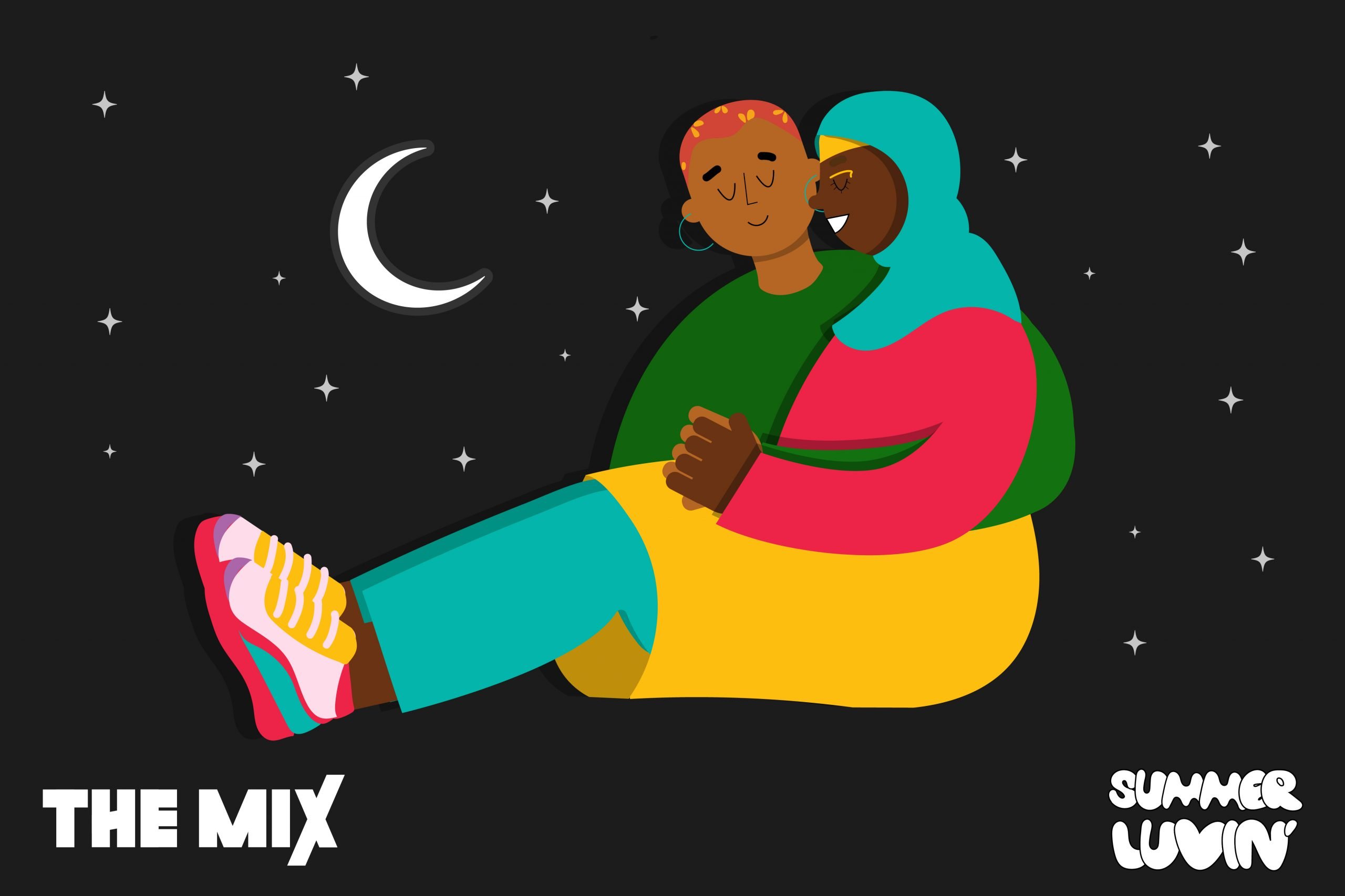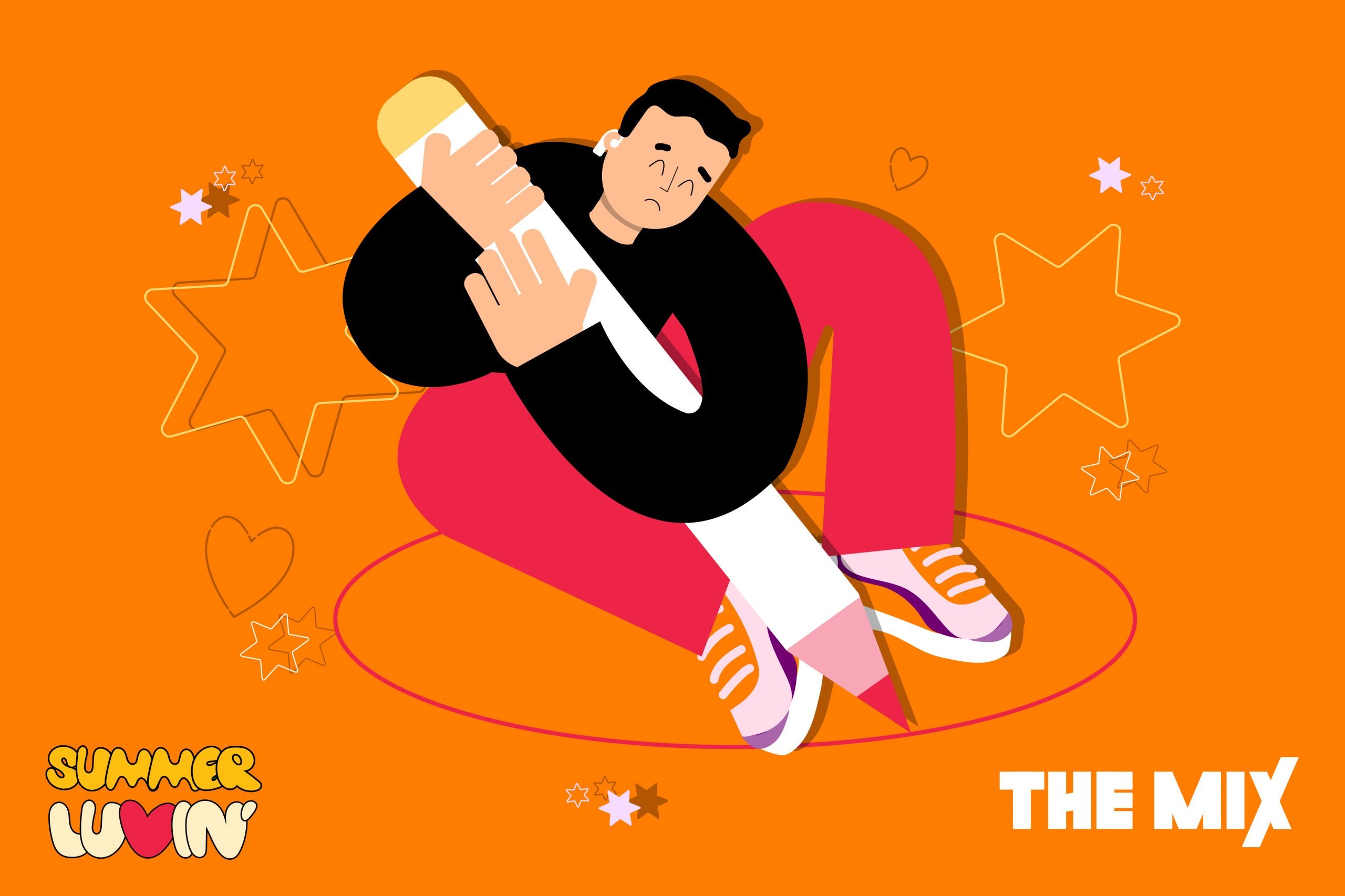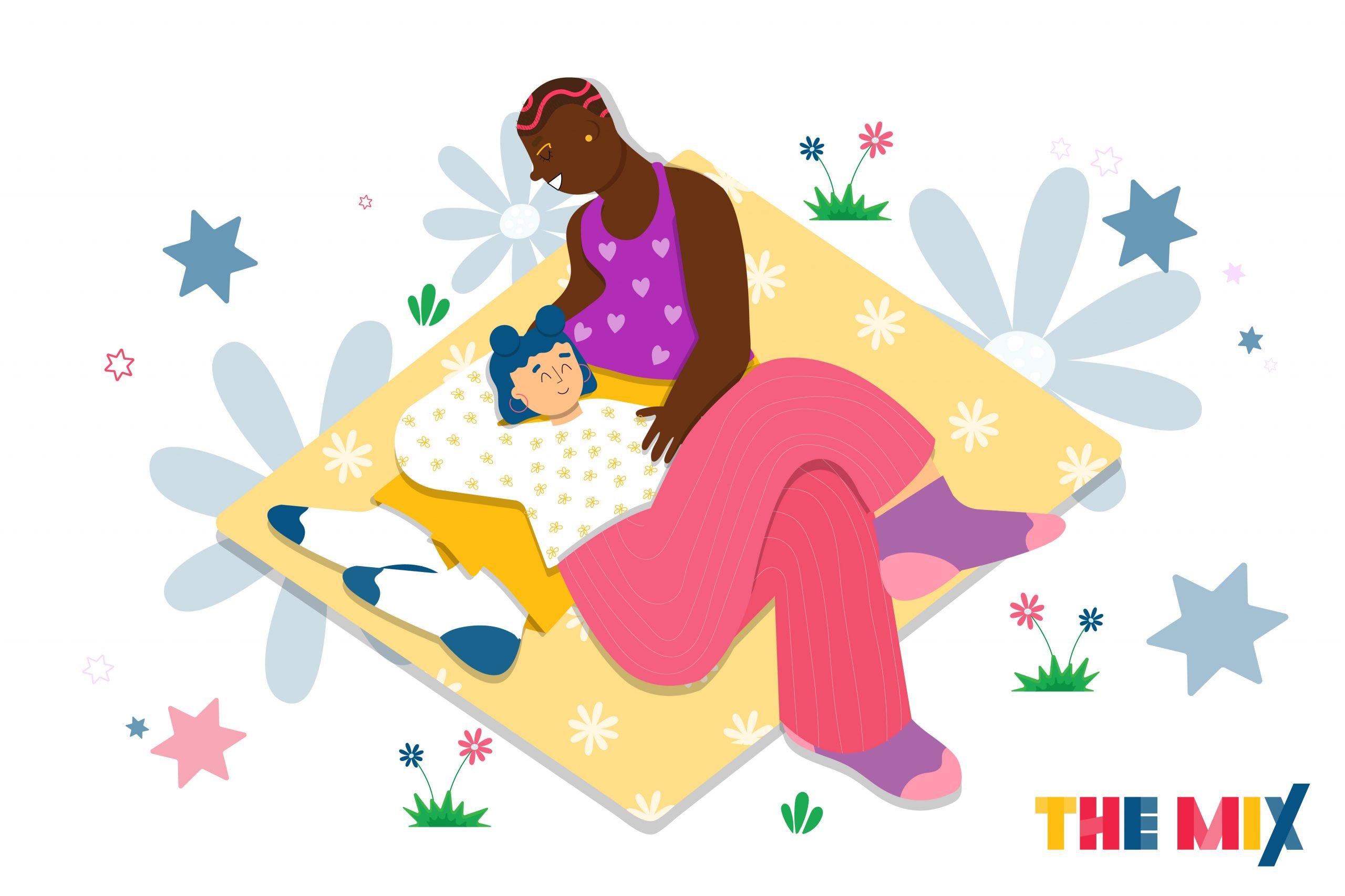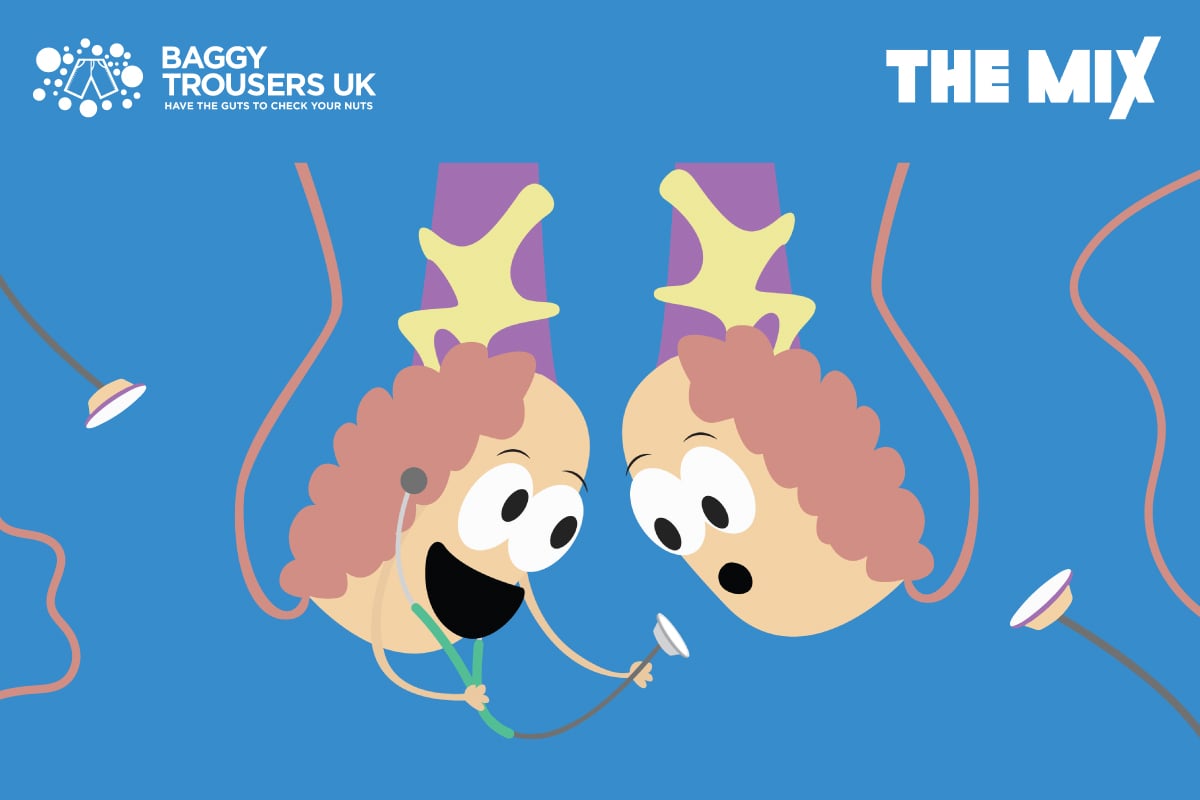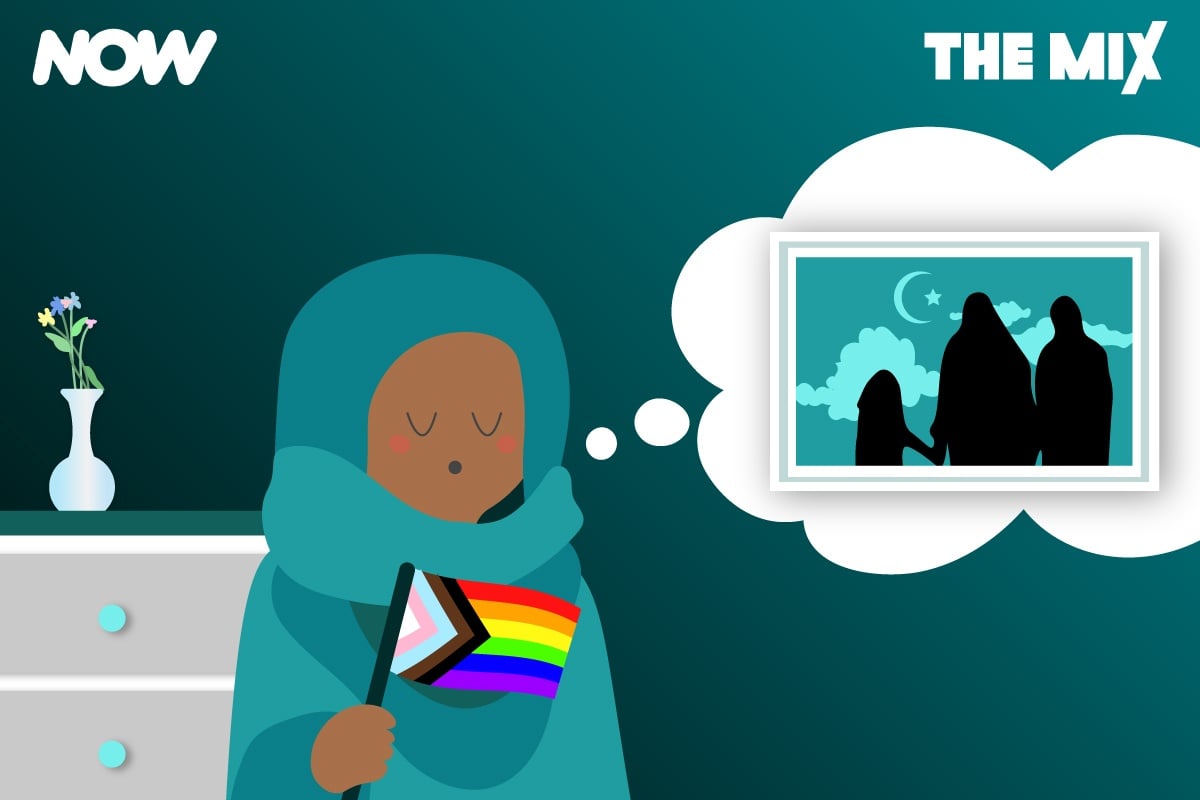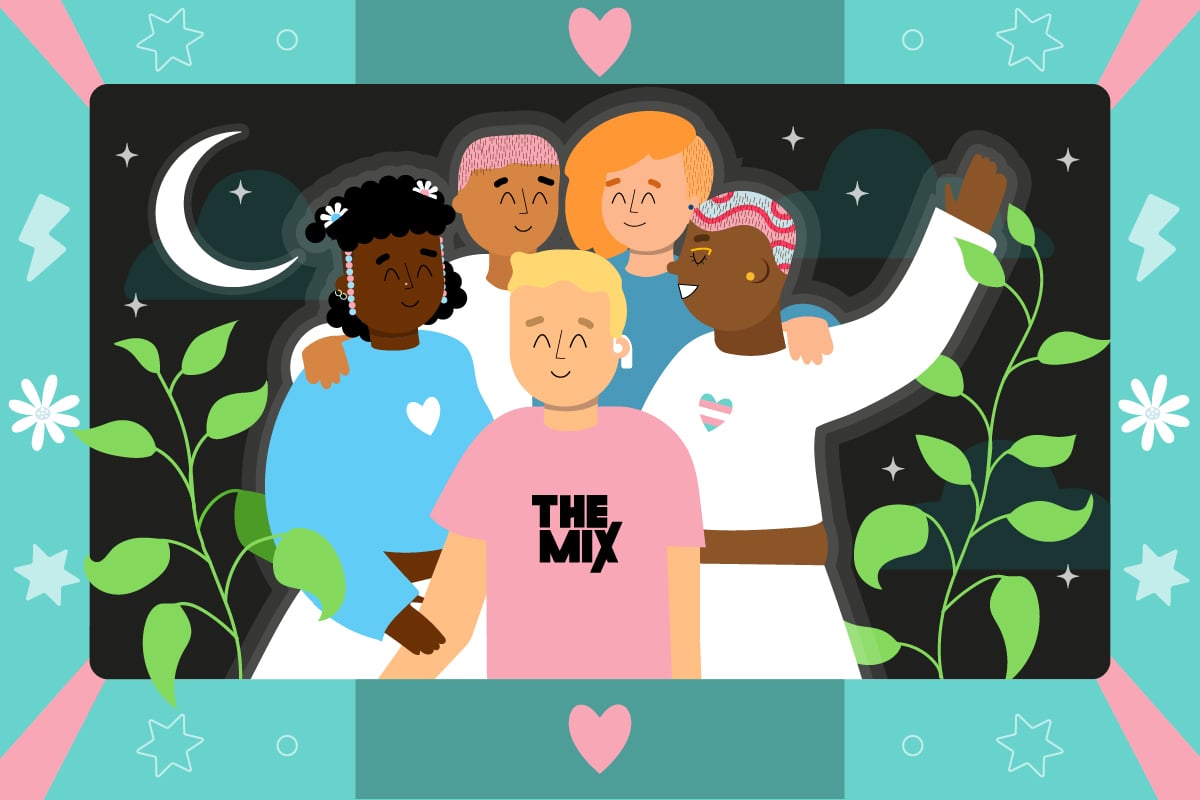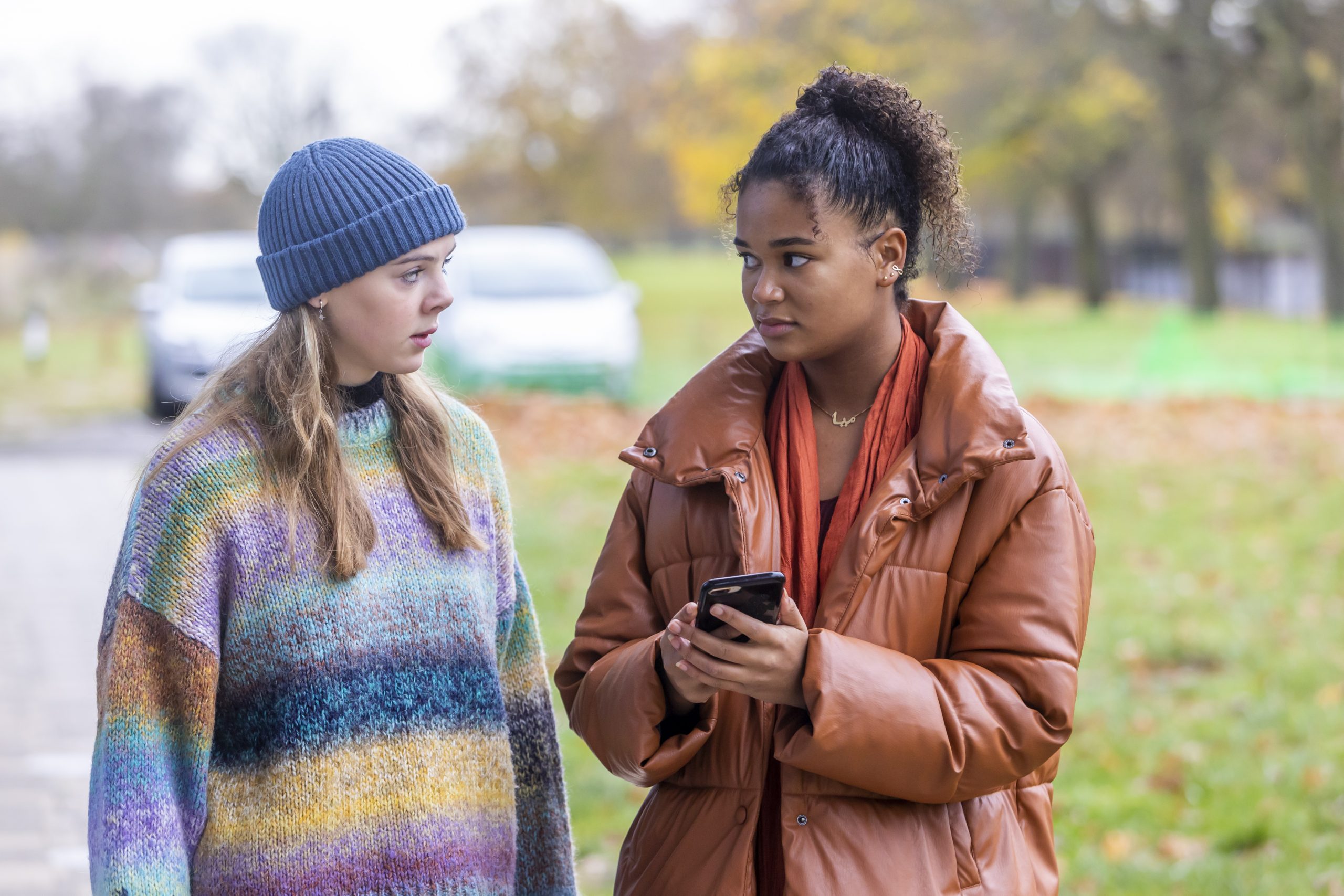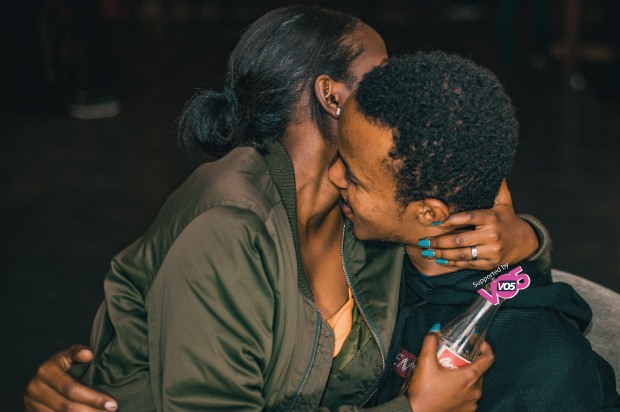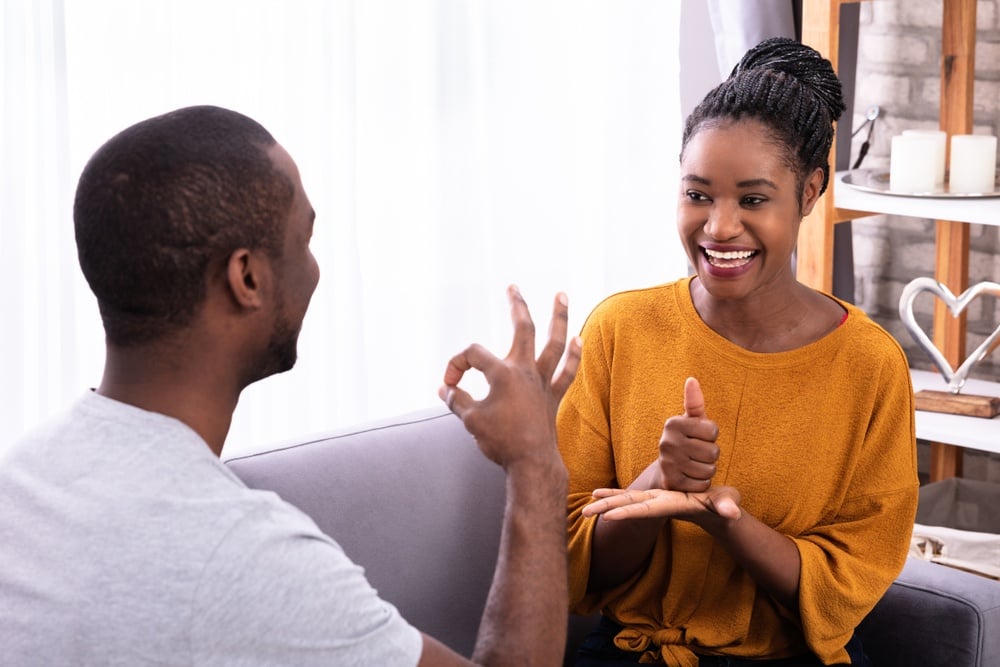Find support for sex & relationships
Sex and relationships make the world go around, but that doesn’t mean they’re easy. We’ve got more choice than ever, but navigating relationships (sexual relationships, family and friendships) in the world of Tinder and TikTok isn’t always a walk in the park. But fear not! The Mix is here to help….
Sexual consent
If you’re looking to get educated about sex and relationships, start by reading up on the age of consent then brush up on enthusiastic consent. Exploring your sexuality can be as fun as it sounds, but it’s a whole lot better when you and whoever you’re doing it with are safe and empowered.
Sexting
You might find yourself under pressure to send sexts (intimate photos or videos), but not only could this end up being seen by the wrong people, if you’re under 18 sexting is illegal. Remember, if you feel you’re being pushed into doing something, there’s no shame in being clear with your boundaries.
Friendships
With all this to deal with, having the right friends around you can certainly help. Unfortunately, not all friendships are created equal, and it’s completely normal to fall out with people sometimes. Maybe it seemed good at first, then you find out they’re talking about you behind your back. Maybe you always listen to their problems, but they’re too busy to listen to yours. Knowing when to end a friendship is a valuable life skill.
Gender & sexuality
It’s totally normal to have questions about your gender and sexuality when you’re growing up. Am I gay? What does it mean if I fancy my friend? What if I don’t feel comfortable with my pronouns? Confused? Don’t worry, so is everyone else. Questioning what is your sexuality and/or gender identity and who you’re attracted to is part of growing up, and there is plenty of support to help you navigate it.
Abusive relationships
Another important aspect of sex and relationships we’d recommend being educated on is learning to spot the signs of abuse. Whether it’s emotional or physical, abusive relationships can be very complicated, and sometimes people stay in them even when they’re detrimental to their overall physical and mental health.
Remember that whatever you’re going through and whatever you’ve been through, our team here at The Mix is ready to listen and help.
Useful resources
Real life stories & expert advice
How to cope when a friendship ends
Emmanuela’s story about coming out to her mum
Charities who can help
Find expert sexual health advice from Brook
Relate offer expert relationship guidance
The Proud Trust’s Proud Connections Live Chat is a safe space to discuss your gender and sexuality
Get support from the LGBT Foundation
Sexualities explained
Want to know the right terms to use when talking about sexual identities? There’s a lot of terminology out there and it’s important to be informed so you can be supportive to others. Kyle De’Volle takes us through some of this language, to help us all become better allies to the LGBTQIA+ community.
Find out more
1
What is our community saying?
FAQs
How can I have safe sex?
You can practice safe sex by taking control of your sexual health; this is not only wise, it can make things more enjoyable, too. Not practicing safe sex, on the other hand, can increase your risk of STIs (Sexually Transmitted Infections) and unwanted pregnancies.
Although sex should be enjoyable and fun, it can put you in a vulnerable position, both emotionally and physically. On the physical side of things, using a condom is a common method of contraception which greatly reduces the risk of passing on STIs or getting pregnant.
Condoms are sometimes described as a barrier contraception method, with other examples being female condoms and dental dams… what is a dental dam? A dental dam is a sheet of latex used during oral sex to help stop STIs being spread.
No form of sexual contact is entirely without risk of STI transmission, but non-penetrative contact (body rubbing, mutual masturbation without penetration) carries the lowest risk. This is why it’s a good idea for you and your partner to get tested, which you can do from the safety of your own sexy home these days with an STI home testing kit.
Some STIs don’t cause any obvious symptoms or signs until quite some time after you’ve contracted them. By the time you find out you have one, you may have unknowingly shared it with someone. And by the same token, a partner may unknowingly share one with you.
Safer sex isn’t just about avoiding being hijacked by some kind of STI or having an unwanted pregnancy — it’s also about your emotional health, as well. Communication is key when it comes to intimate relationships, and making sure you and your partner are on the same page when it comes to what you want out of the physical side of your relationship.
For example, if sex is casual for you, but a sign of true love for the person you’re doing it with, someone might end up getting hurt! Read our articles on safe sex to learn more about how to stay safe in the bedroom (or anywhere else).
Is it normal to masturbate?
The answer is, 100%, yes. Most people masturbate. It can help you work out what you want during sex, explore your body and enjoy yourself.
While there’s no right or wrong way to pleasure yourself, some women find it difficult to climax during sex, and this is far more common if they haven’t learned to orgasm on their own. So, practice makes perfect! It doesn’t matter whether you use your hands or a sex toy of some description, the more you know about how to masturate yourself, the more likely someone else will be able to do it.
For all genders, there are many masturbation myths out there that might be putting you off your stroke. No, it won’t make you go blind, or cause any angels to drop out of heaven. Wanking is perfectly normal. In fact, it comes with many health benefits, including the release of endorphins that influence mental wellbeing, and for some people, reduced menstrual cramping.
Also, there isn’t a magic number of wanks per day beyond which your genitals will fall off, but like anything else it could be considered an addiction if it’s getting in the way of other parts of your life. Otherwise, releasing some sexual tension through masturbation is absolutely safe.
These days, wanking and porn go hand in hand. While there’s not necessarily anything morally wrong with watching porn, it’s important to remember that the kinds of bodies you might be seeing on your laptop are likely to be a very narrow representation of what human bodies look like. Not everybody has a ten inch penis or a designer vagina, and the world wouldn’t be very interesting if we all looked the same.
How can I be a good friend?
You and your friends may be genuinely interested in spending quality time together, but if you’re not clued up about how to be a good friend you might send out the wrong signals and begin to drift apart. But don’t worry, The Mix has put together a checklist for how to be a great friend.
Like yourself
How to be a good friend 101? Be a friend to yourself. Start with a bit of self love. Think about the positive things you bring to a friendship. Really take the time to get to know yourself and find out what brings you joy. Once you have that joy and happiness in you, it’s easy to give it to your friends as well. But remember, this doesn’t mean you need to hide your feelings if you’re genuinely upset – a true friend will support you through your ups and downs.
Choose your close friends well
Don’t stretch yourself too thin. While it’s great to have loads of people you know and like, it’s even better to have a select few that you spend more time with. A relationship with a close friend can often be more valuable than a hundred acquaintances. That way you have people who truly love and care for you for who you are, down to your very core.
Make time for your friends
Don’t abandon your mates at the first sign of lust because they’re the ones you’ll run to if it all goes wrong. Problem is, if you’ve vanished off the planet for a few months previous to this they may not welcome you back with open arms. If you are on the receiving end of this, tell your friend directly, as subtle hints tend not to work. Make sure to emphasise the need for quality time together, preferably without significant others.
Treat them as you wish to be treated
When you look up how to be a good friend we’re pretty sure this is the first thing that pops up. It’s a pretty simple one, but you’d be surprised at how many people neglect it. Basically just think about things from their point of view. Give them the respect and care that they deserve. Take the time to give them a call. All these small things can genuinely make someone’s day.
Make them feel wanted
Just like with lovers, where you may give surprise gifts, special dates and candle-lit meals, making your friend feel special can help make your bond stronger. A lot of people worry about friends actually wanting them around, so reminding them that they are a true friend is always a lovely gesture.
Deal with problems
It is better to bring up problems before you get to the point of a massive row, even if it might feel uncomfortable. Regardless, make sure you have a rational discussion and always apologise for the role you played in the issue, even if it’s minor. Most friendships go through a tough time now and then. Being mature enough to forgive and move on is the secret to building good friendships that last a lifetime.
For more advice about how to manage falling out with friends, see this article.
Be a good listener
This is a two-way thing, don’t expect them to be genuinely interested in your rants when you’re having a tough time if you have no desire to help with their dilemmas. As is the case with many of our tips for how to be a good friend, think about how you would feel in their shoes and try to do right by them. If you find yourself bored by their concerns and can’t be bothered, ask yourself if this is one of those rare true friendships or maybe just a casual acquaintance.
Build a foundation of trust and loyalty
These are essential parts of true friendships. You don’t have to share everything, but if they do, make sure you don’t blab to everyone else too. How would you feel if they did the same? Being able to trust someone with your deepest thoughts and feelings is really important when developing a close friendship.
Support them
If you expect them to be there for you when you fall, because you will, you’ll have to be there for them too. Even if you don’t feel like it that day. This could be a simple thing like taking them for a walk so they can vent, or doing them a practical favour when they’re in need. If you ever need a reminder on this tip, just listen to the Friends theme song.
Admit when it’s over
Even if they were a great friend before, sometimes the spark just fizzles. If you start to bore them and vice versa, only get together for social media, and find it a chore to text them, then call it a day. You shouldn’t constantly feel uncomfortable in a friendship. Remember, you can’t find a soul mate in everyone you meet. It’s totally okay when friendships grow apart, just means that you’ve each done some growing individually and need to explore other places and people separately.
If you want some more advice on what to do when a close friendship ends, head here.
How do I break up with someone?
You’ve made up your mind: the romantic relationship is over. Now you’ve got to figure out how to break up with someone. We won’t lie, It’s not going to be pleasant. However, you can try to make sure the break up goes as smoothly as possible with these break up tips.
Tell them in person
Unless they’re abusive, breaking up face to face is the decent thing to do, no matter how tempting it may be to hide behind a phone call or a text message.
Pick a good time
Probably best to avoid breaking up on their birthday, or right before an important exam.
Keep it simple
Plan what you’re going to say and practise it beforehand. Get to the point quickly; it’s better for everyone if the breakup conversations are done with as quickly as possible – it should be like pulling off a plaster.
Don’t backtrack
You’ve made your decision. Giving them false hope and/or leading them on won’t help anyone in the long run.
Be honest
Don’t make up fake reasons for ending it. That doesn’t help either, especially if they find out.
But not too honest
Being dumped hurts. No need to rub salt in the wound by listing all the reasons why you stopped fancying them. Also, if you find yourself falling for someone else – best not to mention it for a while.
Let it sink in
Don’t immediately demand all your stuff back, or ask if you can stay friends. Give them time to process what’s happened. Space will be good for both of you.
Accept that they’re hurting
However gently you’ve handled things, they may well see you as the baddie. It’s not your job to make that better. Let bygones be bygones and move on.



















